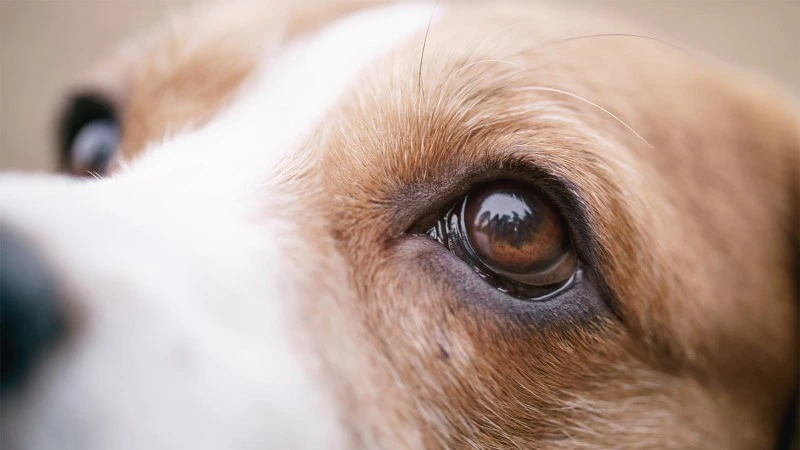Your Dog Needs Healthy Eyes and Clear Vision
We all know that dogs depend heavily on their sense of smell and hearing to take in the world around them. But dogs also depend on optimal eyesight to navigate obstacles safely, see potential prey or predators, and enjoy those countless games of catch with their beloved humans. As a concerned dog owner, you should understand some key points about how you and your vet can help your dog keep seeing clearly for many years to come.

Common Threats to Your Dog's Eyes
A dog's eyes can suffer from many of the same issues as human eyes. For instance, an injury or infection can cause corneal redness, eye discharge, and irritation. Dry eyes from insufficient water or oil in the tears can lead to blurry vision and potential corneal damage. Older (or diabetic) dogs can develop cataracts that cloud the lenses of their eyes. Certain species of dogs, including Chow Chows, Poodles, and Cocker Spaniels, face an elevated risk of glaucoma.
Nutritional Support to Fight Itching, Dryness, and Other Problems
While your veterinarian examines your dog for underlying disorders and/or recommends dietary or lifestyle changes as needed, you can safely give your canine friend some healthy nutritional supplementation to ease dry, scaly, itchy skin and rejuvenate its coat. Start with the following inflammation fighters.
Symptoms That Merit Evaluation and Treatment
Some eye problems cause visible changes in the eyes themselves. Cataracts, for instance,
make the eyes appear white or cloudy, while infections or injuries can turn the affected eye
red. Even if you don't see obvious eye symptoms, watch for behavioral changes such as
bumping into objects, hesitation when it comes to navigating household obstacles, easy
startling, confusion, and pawing at a painful eye.
Thankfully, veterinarians can treat many eye issues with antibiotics, lubricant eye drops,
and other medications. Surgery can sometimes fix a damaged eye or replace a cataract-clouded
lens. If your dog's vision can't be saved or corrected, your veterinarian can recommend home
care strategies for helping your dog get through life more easily and confidently.
Preventative Care and Nutritional Support
Even if your dog's eyes and vision seem fine at the moment, you'll want to keep scheduling
regular veterinary wellness checks. In addition to the many other conditions these
evaluations can uncover, periodic eye exams let your veterinarian diagnose eye disorders
that might call for medical treatment and/or adaptive changes (such as placing household
objects where your pet can find them easily).
Proper nutrition can help preserve and optimize your dog's vision. Feed your dog sweet
potatoes, kale, broccoli, carrots, and blueberries, all of which provide plenty of
eye-healthy antioxidants. Kale, in particular, can serve as a rich source of zeaxanthin and
lutein, two ley antioxidants for healthy eyes. (Your dog can also get lutein from eggs.)
Omega-3 fatty acids can help dogs prone to dry eye or inflammatory eye problems. Sardines
and other fatty fish can help your dog get these important nutrients.


 Return to
Return to